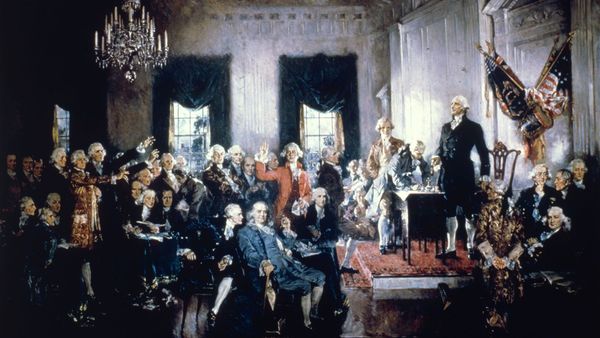
Surely you've heard it before. If you've read any news chronicling an incumbent president who's reached the end of his term, you've come across the term "lame duck." Initially, it was used to describe investors who were unable to pay their debts. In the hands of Americans around 100 years later it was applied to "broken down politicians" [source: The Phrase Finder]. This version stuck.
Despite their timid-sounding moniker, lame-duck office holders aren't always as meek as little lambs. Since they may no longer feel beholden to voters, these officials may take advantage of their position against the wishes of their constituents. The 20th Amendment to the Constitution, known as the Lame Duck Amendment, was passed to reduce this risk, by shortening the terms of elected officials who are voted out of office.
Advertisement
The lame-duck phenomenon even has its own obscure holiday. February 6 of each year is "Lame Duck Day," a time to reflect upon the service provided by a public servant after his or her tenure has been completed [source: Holiday Insight]. It's held on February 6 because it was on that day in 1933 that the 20th Amendment was adopted [source: FindLaw].
Lame duck politicians are serving out their final terms because they have lost a re-election or are no longer eligible to serve. The term is often used to describe sitting presidents who have served two terms, and have entered their last year. It's somewhat mean-spirited, looking toward the future while the incumbent remains in office -- for the time being.
But to saddle politicians with lame duck status simply because they have reached the end of their terms is like assuming an aged lion no longer has any teeth; they were once, after all, powerful. Besides, now freed from any obligation to court voters for another election, lame ducks have much more freedom to follow their own course.
Read about some of the hits (and misses) some lame duck presidents have made in the final days of their terms in this article. But first, read about the Lame Duck Amendment to the Constitution.
Advertisement




